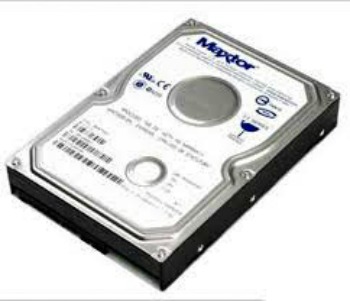We think so little about what’s inside our computer whenever we use it. What’s important is that it does the job right every single time. We do not concern ourselves with all those little things anymore until something goes wrong, which is often the case. The thing we hate the most is when the things that make our life easier fails to do its job when we need it the most.
 Data loss due to hard drive failure is a common problem we face these days. We store a lot of important files and documents on our computer for safe keeping and ease of access. Unfortunately, these modern gadgets aren’t always reliable and we may end up losing precious data forever. It’s even more disastrous for business owners where data is far more valuable to the operation and success of their business ventures.
Data loss due to hard drive failure is a common problem we face these days. We store a lot of important files and documents on our computer for safe keeping and ease of access. Unfortunately, these modern gadgets aren’t always reliable and we may end up losing precious data forever. It’s even more disastrous for business owners where data is far more valuable to the operation and success of their business ventures.
Most PC users have at some point experienced a crushing data loss. Whether their laptop’s power supply failed or a program crashed without saving content, the loss of information happens. Unfortunately, for many users this loss is permanent because they have not followed best practices for backing up their data.
When data is lost, an advanced recovery tool is often needed in order to extract valuable business or personal content. But this is a last resort, and users should proactively try to prevent situations where they put their data at risk, whether it’s exposing hard drives to the elements or IT picking an untested cloud provider. And unfortunately user error is still a leading cause of data loss, whether they are deleting files they meant to save or overwriting data by accident. Users should be taught to not compound any errors by following the right recovery procedures, which includes knowing when to call in outside help.
(Via: http://www.itproportal.com/features/managing-hard-drive-data-loss/)
Most businesses often have a backup procedure in place, such as a disaster recovery plan or a business continuity plan to ensure that their digital files can survive any untoward incident that may render their computer’s hard drive useless.
A lot of the files on your computer or phone are precious, from family photos to that report due in next week. If you accidentally erase something you wanted to keep it’s one of the worst digital disasters imaginable.
Before you completely despair though, check out the tips we’ve outlined below, because there are ways of getting those deleted files back, if you’re lucky.
When computer systems delete files, they don’t actually erase the 1s and 0s of the data, they just mark the space as free for new files. So if your hard drive is a block of apartments, your deleted files don’t get evicted, but their flats are marked as vacant for other files to move into. It’s not until that new data shows up that the old data is kicked out.
That means if you’re quick, you stand a chance at getting the files back, but you do need to get started as soon as you can and use your computer as little as possible in the meantime, minimizing the chance that any other files will take over the same space the old files took up. This applies most broadly to old school hard drives with actual moving parts. On solid-state drives (SSDs), it’s slightly more complicated—you can still get your data back, but the process is more hit and miss.
Before you do anything else, check the Recycle Bin (Windows) or Trash (macOS) to see if your files are there. If so, a right-click or a copy-and-paste is enough to restore your files to their former spot, and you can breathe easy again.
(Via: http://www.popularmechanics.com/technology/how-to/a26197/how-to-recover-deleted-files/)
It is common knowledge that hard drives can get corrupted or that your computer or laptop gets old and become unreliable, so it is always best to back up your files in the unlikely event that the original copy gets lost. You can either purchase an external hard drive or a handy flash drive that can save you from the woes and all the trouble of data recovery. The cloud is also an excellent place to store your data. Platforms like Dropbox or Google Drive make document sharing easy and accessible and at the same time, they also store your data without taking up space on your hard drive itself.
When your luck runs out and you eventually lose your data for whatever reason, one of the first things you can do is https://www.harddrivefailurerecovery.net/fixing-hard-drive-errors/. With their expert help, you can check the likely cause of the problem right away, so you have a higher chance of salvaging your lost data while you still can. If the data is important enough that warrants a recovery, https://www.harddrivefailurerecovery.net/hard-drive-broken-how-to-recover/ can come to your aid. It is better to have professionals solve these problems for you right from the start and not make the problem even bigger by meddling with it despite not knowing much about it yourself.
